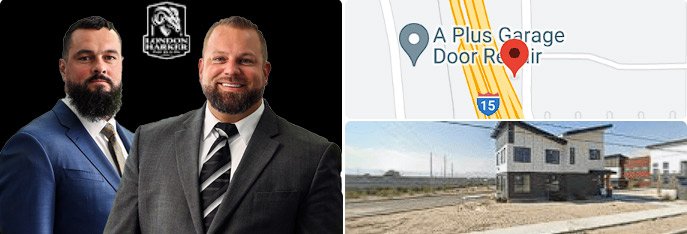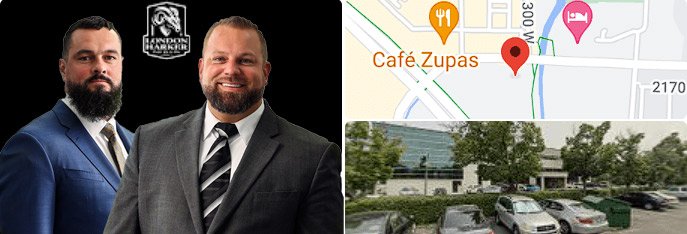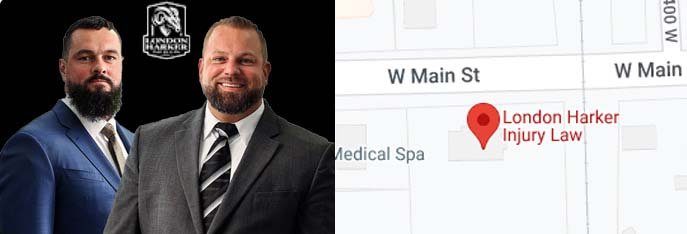Posted on Friday, November 10th, 2023 at 9:00 am

When a person in Utah suffers an injury because of another party’s negligence or wrongdoing, they have the right to recover compensation from that party or their insurer. They must support their claim with evidence to prove their claim and obtain the money they’re due.
Collecting evidence to support a personal injury claim serves two purposes. First, it proves the other party caused the injury and should be responsible for the injured person’s losses. In addition, it provides information that shows the extent of the injured person’s financial losses. There are a variety of types of evidence that can support an injury claim.
What Evidence Do You Need?
If you’ve been injured in an accident that wasn’t your fault, one of the earliest tasks you or your lawyer will need to undertake is finding evidence that shows someone else caused the accident. This evidence can be presented to the at-fault party’s insurer when you submit your claim for the compensation you deserve. The at-fault party’s insurance company could deny your claim without such evidence.
In addition to showing that the other party was at fault, you’ll need evidence to prove the extent of your financial and other losses. The following kinds of evidence can support your personal injury claim to help you get the maximum possible compensation for your accident-related injuries:
- Medical records: You should get medical treatment as soon as you can after the accident. Tell the doctor that your injuries were from an accident. Seeing a healthcare professional creates a paper trail that links your injuries to the accident. Additionally, the records will show how long you were under a doctor’s care, the extent of your injuries, and whether they left you with permanent impairments.
- Police report: In many cases, such as motor vehicle accidents, bicycle accidents, motorcycle accidents, or pedestrian accidents, somebody will call the police to the accident site. When that happens, an officer will make a report. The report will include information about the parties involved, their insurers, any witnesses and their contact information, a diagram of how the accident occurred, and perhaps an indication of which party the officer believed was at fault for the crash. Although the police report isn’t admissible in court, it can be persuasive evidence for the insurance company.
- Accident report: If you were injured on someone else’s property due to a hazardous property condition, such as a spill, unsafe parking garage, clutter or debris on the floor, or other such circumstances, you probably completed an accident report for the property owner or manager. This document can be important evidence because it contains your immediate recollection of how the accident happened. It proves where and when the accident took place. The property owner or manager likely signed it, so their signature acknowledges that the accident occurred.
- Witness statements: When someone else saw the accident take place, getting their impressions of what happened as soon after the accident as possible is important. A witness statement that confirms your version of events is strong evidence in your favor.
- Photos or videos of the scene: If you took pictures or video recordings of the scene of the accident just after it happened, great. If not, asking a friend to go back immediately afterward to capture those images could be helpful evidence. In the case of a traffic accident, evidence such as skid marks or debris from vehicles might still be at the site. In the case of a slip and fall accident, depending on what you tripped on, you might still be able to show a broken stair or stair rail or cluttered environment after the fact.
- Black box data: If you were injured in a crash with a commercial truck, your lawyer could obtain the data from the truck’s black box, which is similar to the black box on an airplane, to help prove the cause of the accident. A black box records speeds, acceleration, braking, steering, cruise control use, airbag deployment, tire pressure, and communications between the trucker and the company.
- Cell phone records: If you were injured in a crash caused by another driver, your lawyer could obtain their cell phone records to discover whether they were texting, watching videos, or talking on the phone during the crash.
- Receipts and documentation of financial losses: To prove the extent of your financial losses, you’ll need copies of all the receipts related to any money you paid out because of the accident. This can include healthcare expenses, transportation expenses to get you to the healthcare providers, and repair or replacement of personal property that was damaged in the accident. If you were kept off work because of your injury, you’ll need to show the amount of income you missed while you were off work. You might need W-2s, copies of wage statements, or pay stubs to substantiate your usual income. If you’re self-employed, you might need to include outstanding invoices and copies of your calendar showing upcoming work that had to be canceled because of your injury.
Compiling Your Information
If you gathered the evidence for your case yourself, you’ll need to get your information together, either to hand it off to an attorney you’ll hire to take over your case or to present to the insurance company. Either way, this evidence can put you in a position to prove that someone else caused your injuries, that you suffered financial loss as a result, and the extent of those losses.
Contact a Skilled Lawyer Today
When serious injuries occur in an accident, contact a Utah personal injury lawyer from London Harker Injury Law. Our firm can collect evidence you might have difficulty getting, like black box data. We’ve handled many personal injury cases, we know what types of evidence are available, and we can gather them.
If you suffer an accident injury in Utah caused by someone else, London Harker Injury Law offers a free case review with one of our personal injury lawyers. Call us at 77CARCRASH or use our online form to get in touch today.
Related Posts
Why Some Personal Injury Cases Go to Trial
How Long After an Accident Can You Sue?
Car Accident Settlements: Process and Timeline



